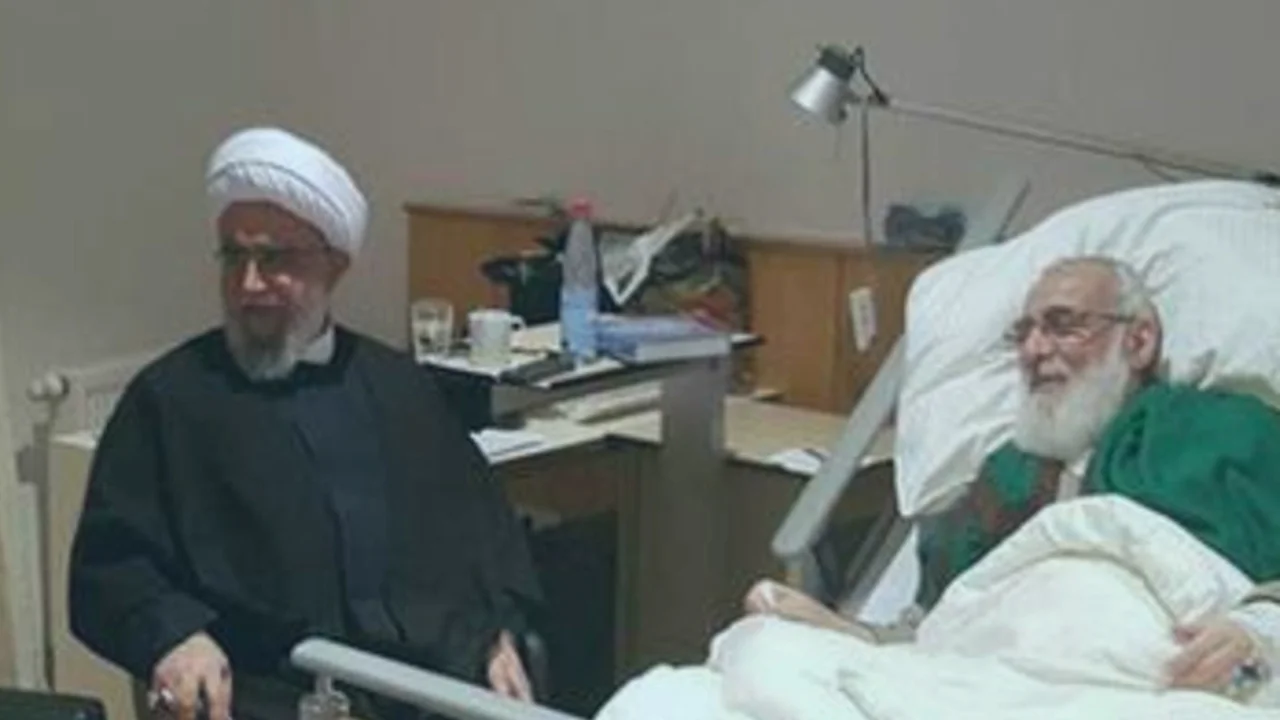Two Decades of State-Funded European Travel for the Regime’s Top Brass
During Iran’s economic crisis of the 1360s (1980s), at the height of the war with Iraq and restrictions on international travel, the close associates of senior officials of the Islamic Republic, including their spouses, Ayatollah Ruhollah Khomeini's children, religious authorities, and senior clerics travelled to Europe for various medical treatments.
Iran Open Data has compiled a dataset by searching Akbar Hashemi Rafsanjani's memoirs, which mention at least 43 foreign trips by clerics and their family members for medical purposes between 1360 and 1376 (1981-1997).
Table Link
Official guidelines stipulated that the Supreme Medical Council could provide approval to send patients abroad for treatment in the 1360s and 1370s (1980s and 1990s). The required foreign currency and expenses were provided by the government.
Although official statistics on the history of patients sent abroad are not generally available, it is said that during the 1360s, some 11,000 people were sent abroad each year for medical treatment.
Searching through the memoirs of Rafsanjani, the second highest-ranking and influential official of the Islamic Republic in the 1360s and 1370s, provides a glimpse into the medical travels of government affiliates.
We have categorized these trips into two groups: "Relatives" and "Clerics, managers and agents.”
Group 1: The relatives of high-ranking officials
In Rafsanjani's memoir, three trips by Khadijeh Saqafi, the wife of Ruhollah Khomeini, are mentioned. She traveled abroad twice in 1361 and 1363 for eye treatment, most likely to Spain. She also went to London once for treatment after Khomeini's death in 1372 (1989).
Mr. Rafsanjani's memoirs also mention a foreign trip by Ahmad Khomeini, who went to Spain for eye treatment.
Hashemi Rafsanjani's memoirs repeatedly refer to the trips his wife and children took for medical treatment.
Rafsanjani also mentions a 1361 trip to Spain for medical treatment by Ali Hashemi, his nephew.
In the memoirs for 1366 (1987-1988), Rafsanjani mentions the travels of Efat Marashi (Ali Akbar Hashemi Rafsanjani's wife) to Germany and Belgium. According to the memoirs, Hashemi Rafsanjani's wife, along with their son Mohsen, first traveled to Germany for sinus treatment and then to Belgium to visit relatives.
The number of trips of the Hashemi Rafsanjani family, specifically Efat Marashi (the wife of Ali Akbar Hashemi Rafsanjani), increased in the 1370s (1990s).
Ali Akbar Hashemi Rafsanjani's wife traveled to London three times in 1972, each time for several weeks. The stated purpose of the trips is medical treatment. Other family members, including children, the daughter-in-law, son-in-law, and grandchildren, accompanied her on these trips.
In Khordad 1374 (May-June 1995), there is a mention of Azam Hashempour's (son of Akbar Hashemi Rafsanjani) trip to London for the treatment of an unknown illness.
In 1375 (1996), Efat Marashi went to London twice for medical treatment, once in Khordad and once in Mehr.
In 1375 and 1376 (1996-1997), there are also two mentions of the medical trips of Fatemeh Hashemi Rafsanjani, his daughter. One, a medical trip in early August 1996 to London and Canada, does not elaborate on the type of treatment sought. The second trip, in September 1997, was allegedly to Canada for the treatment of kidney and throat-related maladies.
Group 2: Clerics, managers and agents
A significant portion of the foreign medical trips mentioned in Hashemi Rafsanjani's memoirs from the 1360s (1980s) refer to the travels of high-ranking clerics and Islamic republic officials of various ranks.
The memoirs mention the European travel, or travel plans, of four religious authorities.
In the entry for Khordad 1360 (May-June 1981), a trip by Ayatollah Shahab al-Din Marashi Najafi to Spain for eye treatment is mentioned.
The entry for Khordad 1365 (May-June 1986) mentions the trip of Ayatollah Mohammad Bagher Khoansari to London for the treatment of cardiac issues.
In an entry dated one year later, on 9 Khordad 1366 (30 May 1987), Akbar Hashemi Rafsanjani wrote that he visited Ayatollah Mohammad Reza Golpayegani, who had allegedly returned from London the day before. In the memoirs, it is mentioned that he had traveled to England to investigate the possibility of having gallbladder cancer.
The 1373 (1994-1995) entries mention an unplanned trip by another religious authority, Ayatollah Mohammad Ali Araki. The conversations between Hashemi Rafsanjani and the children of Ayatollah Araki during the funeral ceremony reveal Araki’s unfulfilled plan to travel to England for medical treatment.
The memoirs mention the medical trips of many other high-ranking clerics.
For example, entries for the years 1364 (1985-1986) and 1374 (1995-1996) mention Mohammad Reza Mahdavi Kani's medical trip to Britain for the treatment of his heart disease.
It is unclear under what conditions the High Medical Council granted permission for individuals to travel abroad for the treatment of heart disease in the 1980s. According to the memoir entry for 19 Azar 1364 (10 December 1985), Hashemi-Rafsanjani himself ordered a medical reservation for Mehdi Mahdavi Kani in London. The entry for Tir of 1374 (June-July 1985) mentions another foreign trip for Mahdavi Kani for treatment.
In the 1 Tir 1360 (22 June 1981) entry, Abbas Vaez Tabasi, the custodian of the Holy Shrine of Imam Reza, is described as having traveled for “medical treatment in Europe and other affairs.”
The 19 Azar 1364 (10 December 1985) entry refers to Ahmad Azari Qomi's request for foreign currency and travel to London for prostate treatment. Azari Qomi was disgraced by Ali Khamenei in the 1370s and was placed under house arrest, but in the 1360s, he was considered one of the active and radical clerics in the political right of the Islamic Republic.
Mohammad Allami Heshtroudi, a teacher at the Qom seminary, went to Germany for medical treatment in 1363 (1984-1985). Mohammad Hashemian, the Sharia jurisprudent and Friday prayer Imam of Rafsanjan, traveled to Spain for eye treatment in Mordad 1361 (July-August 1982).
Mohammad Mehdi Rabani Amleshi, an influential cleric and a member of the Guardian Council, went to Switzerland for medical treatment in Khordad 1365 (May-June 1986). In the memoirs, there is a mention of the trip of Mohsen Doagu, the Friday prayer leader of Shemiranat, to London for cancer treatment. In 1366 (1987-1988), another cleric named Nasrallah Bahrami Savoji, a teacher at Qom Seminary, prepared for a medical trip to Germany. In 1369 (1990-1991), another cleric, Ali Akbar Ashtiani, the representative of the Supreme Leader in the police force at the time, requested help for medical treatment abroad.
In the 1360s, memories of some members of parliament such as Ahmad Tavakkoli, Abdullah Imami, Jalil Sadr Tabatabai, Einollah Alaei, and Eisa Velayati are also mentioned, who had requested foreign medical trips on various occasions.
In the 1370s, the references to foreign trips by clerics and officials decreased, but the trend still continues.
In the 23 Esfand 1371 (14 March 1993) entry, Hashemi Rafsanjani referred to the medical trip of Abdullah Nouri to Germany. Abdullah Nouri was the Minister of Interior at that time.
During 1374 (1995-1996) and 1375 (1996-1997), reference has been made to the foreign trips of Seyyed Ali Mohaqiq Damad, a teacher in foreign seminaries, for hepatitis treatment, Mohammad Reza Tousi, the head of Khomeini's office, Hassan Taheri Khorramabadi, a prominent cleric and a member of the Assembly of Experts, and Ali Hashemi Bojnourdi, the head of one of the branches of the Administrative Justice Court.
In some of the numerous requests that were presented to Hashemi Rafsanjani, the name and details of some are not mentioned. For example, in the memoirs of Ordibehesht 1366 (April-May 1987), a request was made by a person named Dr. Kashani to get foreign currency for medical treatment in Britain. In the memoirs of Tir of the same year, a foreign trip was mentioned by a person named Mr. Salamat for heart disease medical care. In the memoirs of Esfand 1368 (February-March 1990), there is mention of a request by two war veterans for a foreign trip, but the names of these two individuals are not mentioned.
However, among these requests, some are requests to lift restrictions that had been imposed in the 1360s and 1370s on some critics of the Islamic Republic.
Specifically, in the 7 Dey 1373 (28 December 1994) entry, Hashemi Rafsanjani referred to Mehdi Bazargan's request for permission to travel abroad. Bazargan was the first (interim) prime minister of the Islamic Republic who resigned after the US embassy hostage crisis. As Hashemi wrote, with his help, they allowed Mr. Bazargan to leave for medical treatment, but he passed away a few days later during his trip to the United States at the Zurich airport.
In another example, in the 29 Bahman 1360 (18 February 1982) entry, Hashemi Rafsanjani mentions a request made by Moezzoddin Mahallati to obtain permission to travel abroad for medical treatment. Mahallati was the son of Ayatollah Bahaeddin Mahallati, who was critical of Khomeini after the revolution. It is not clear what Mahallati’s relationship with the Islamic Republic government was, but in this entry, it is said that he asked for help from Hashemi Rafsanjani for an introduction to the government’s oil traders.



